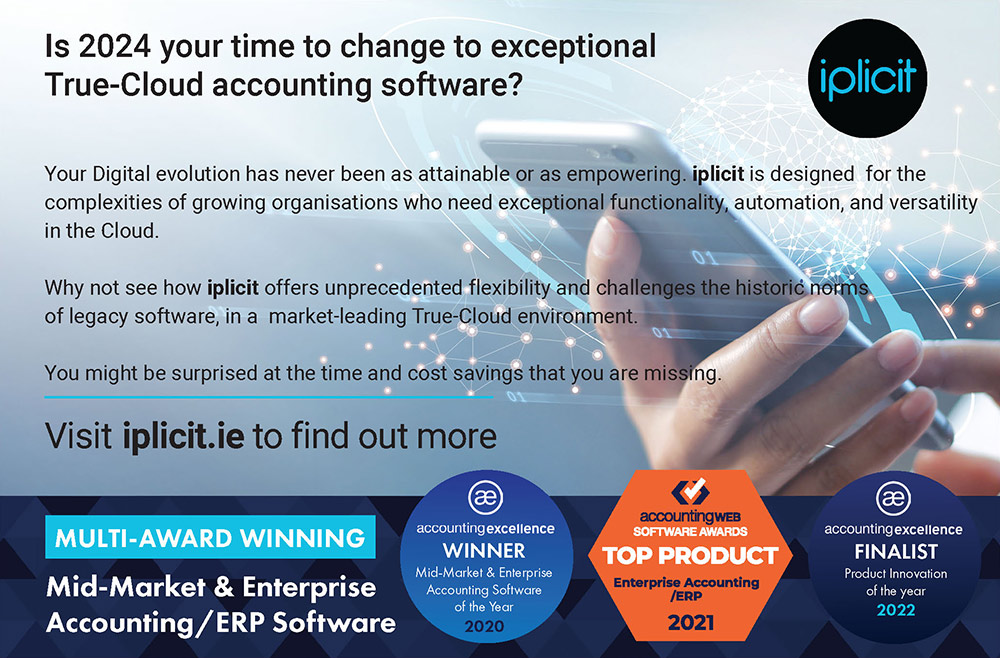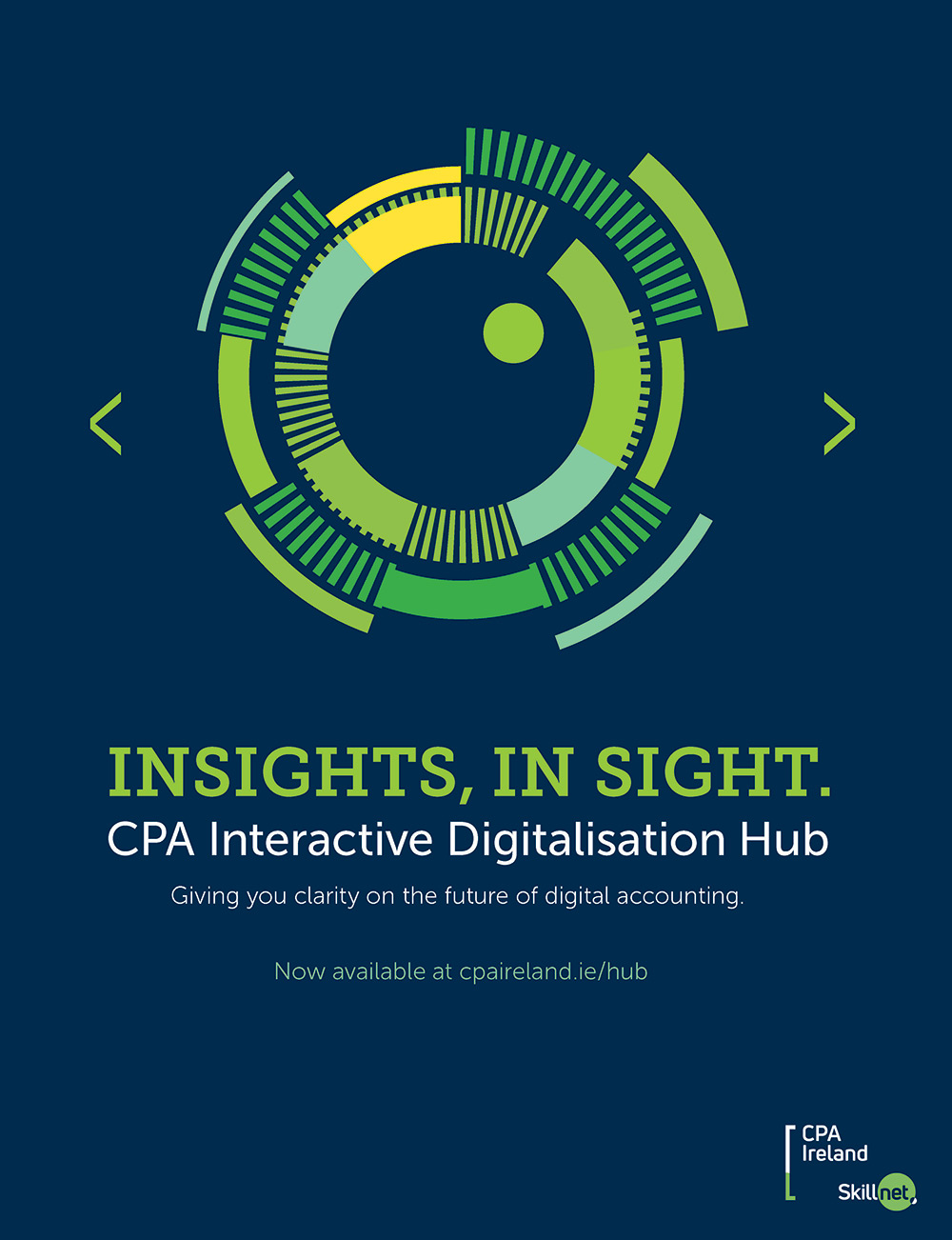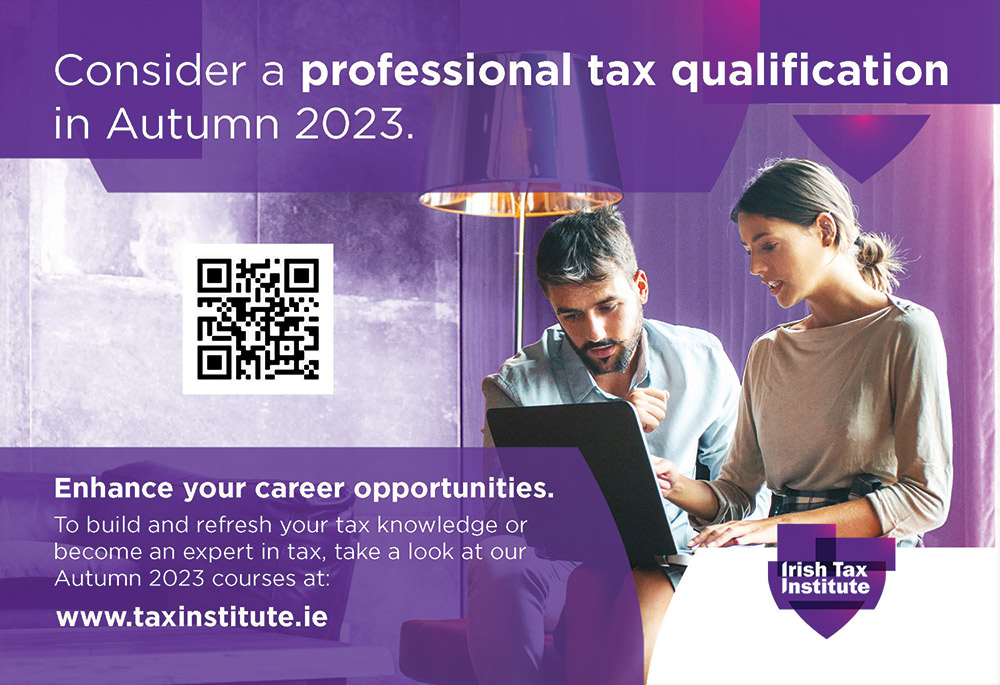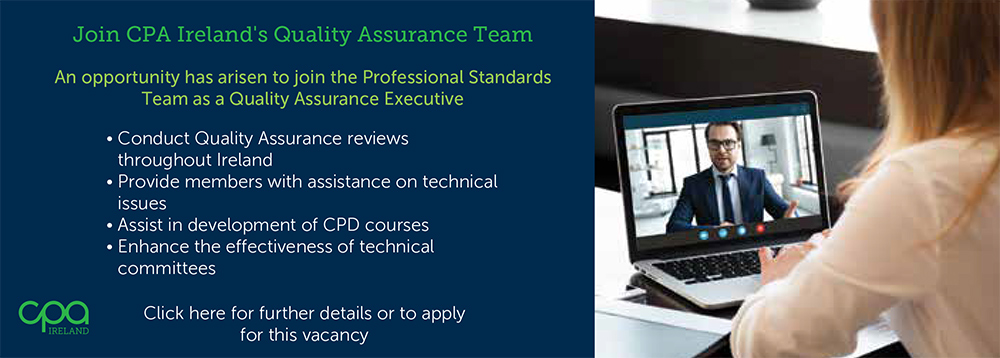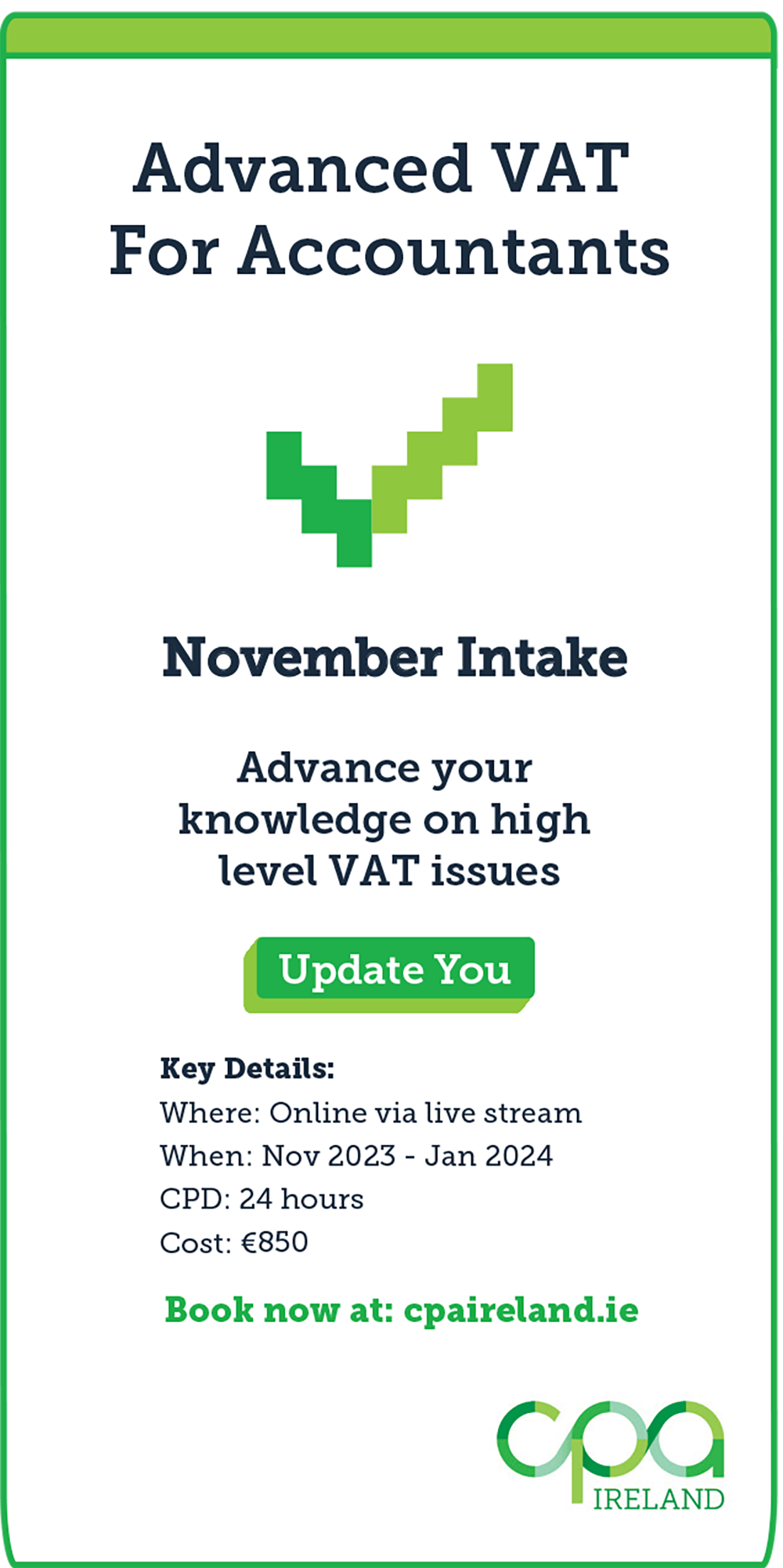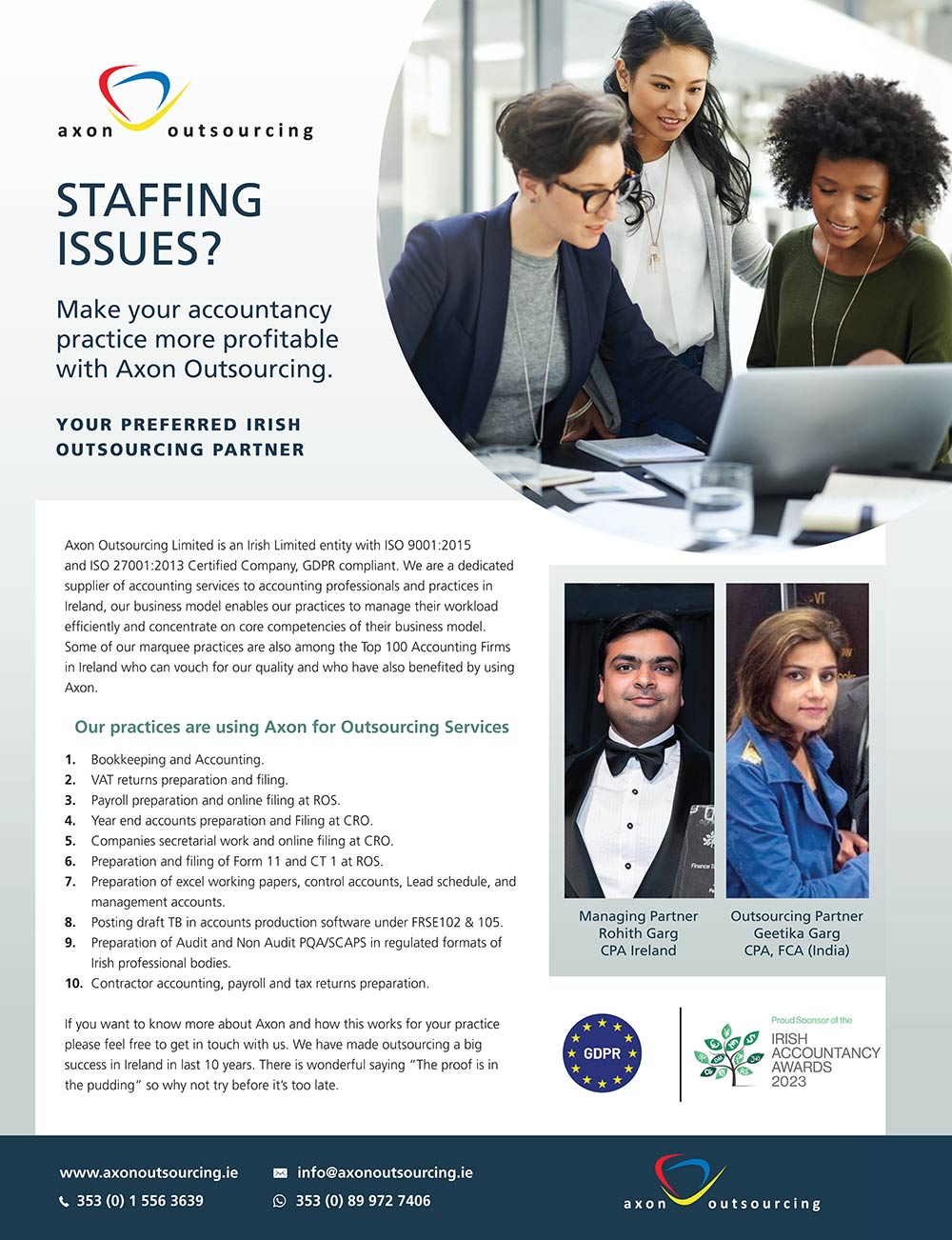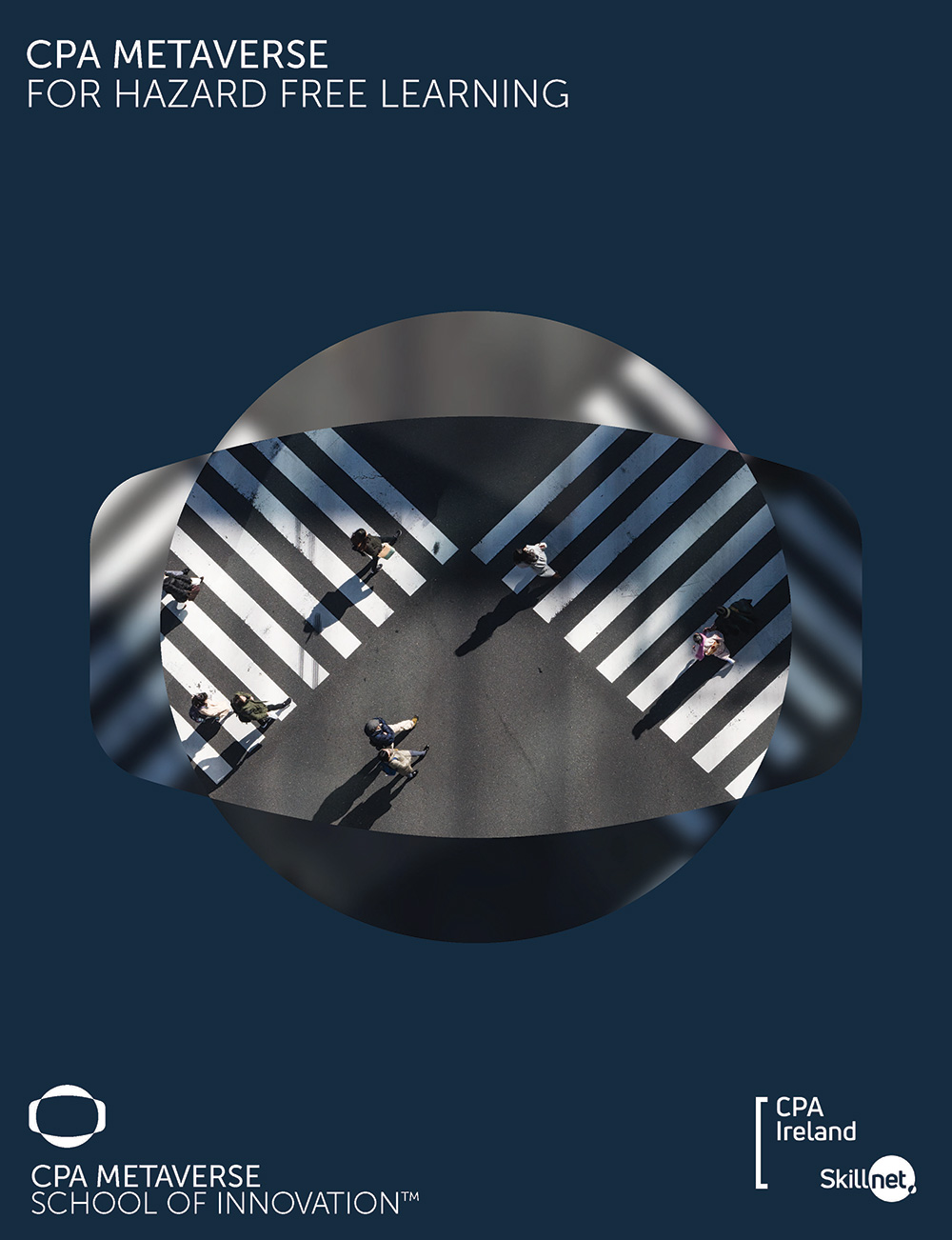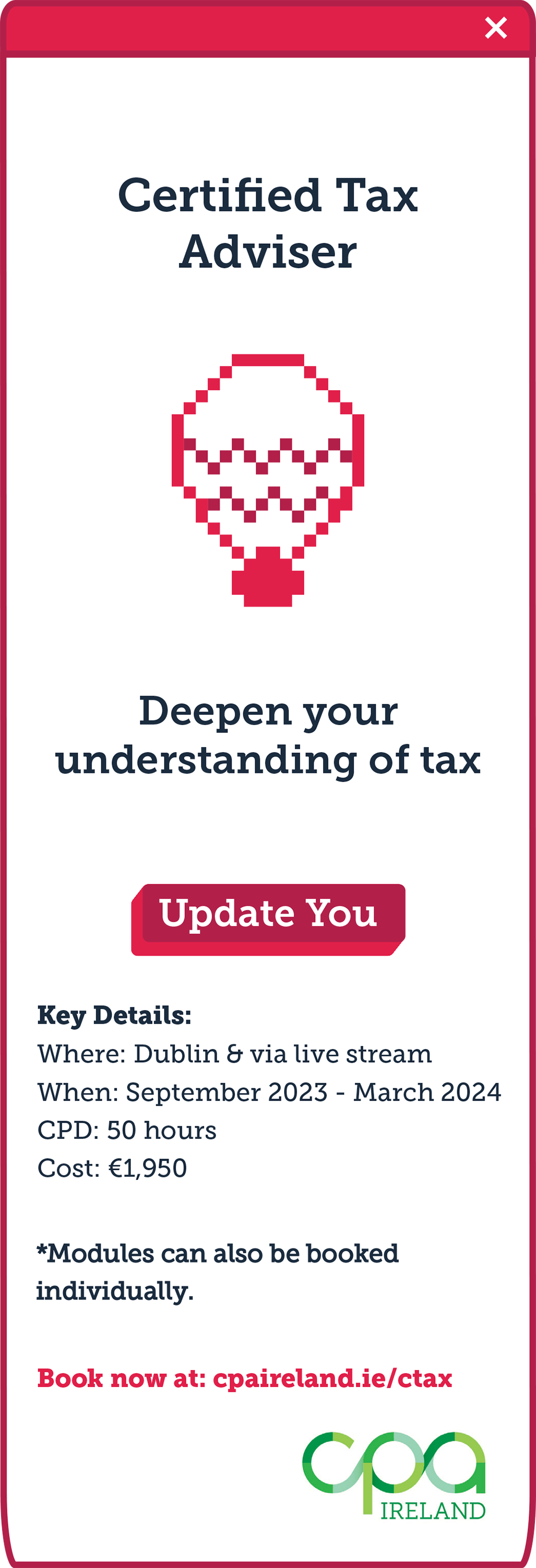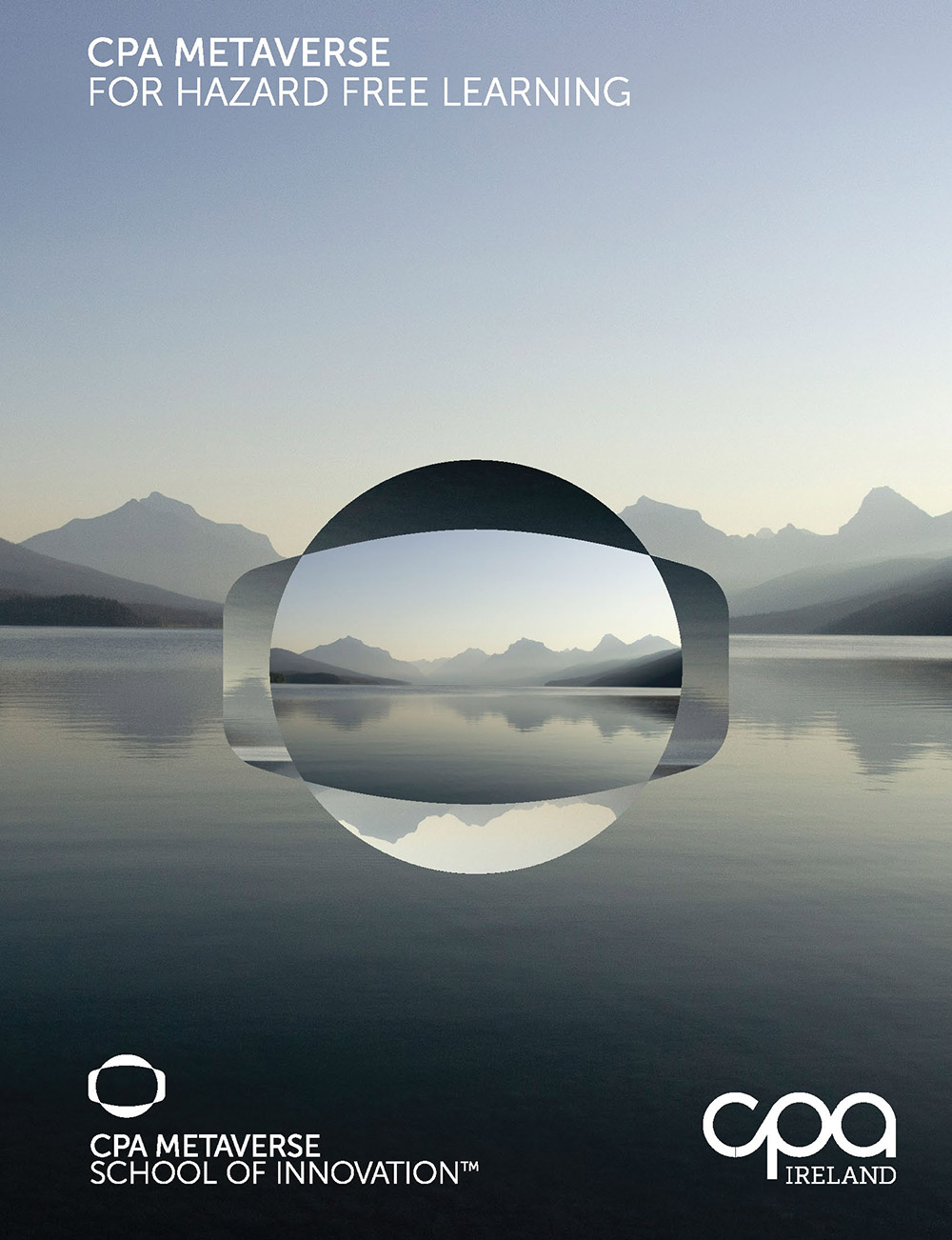September 2023
17 Harcourt Street,
Dublin 2, D02 W963
T: 01 425 1000
F: 01 425 1001
Unit 3,
The Old Gasworks,
Kilmorey Street,
Newry, BT34 2DH
T: +44 (0) 28 3025 2771
W: www.cpaireland.ie
E: cpa@cpaireland.ie
Patricia O’Neill
Chief Executive
Eamonn Siggins
Editorial Adviser
Róisín McEntee
Technical Adviser
Phyllis Willoughby
Jenn Brennan
T: 087 203 4202
E: accountancyplus@gmail.com
Caitriona Minogue
T: 086 843 0622
E: accountancyplus@gmail.com
Published by
Nine Rivers Media Ltd.
E: gary@ninerivers.ie

The number of accountancy practices licensed to audit in Ireland has fallen by close to 500 over the past decade. The number has fallen by 16 per cent over the past five years. The number of auditors has dipped by 12 per cent to 1,725 over the same period.
The growing shortage of accountants, rising costs and the increasing regulatory requirements of audits have all resulted in a significant drop in the number of audit firms in Ireland in recent years. This scarcity can only result in one thing, a jump in costs for businesses, which many may struggle to bear.
CPA Profile
OPINION
Developing Professional Scepticism by Dr Margaret Healy, Dr Brid Murphy, Dr Claire O’Sullivan Rochford and Prof Ray Donnelly
The UK Brydon Report (2019) argues for focused efforts in both formal education and informal development to appropriately prepare the next generation of auditors for professional practice. However, efforts to ‘teach’ PS are not always successful. A study of Irish third level students (Healy, Murphy, O’Sullivan Rochford and Donnelly, Accountancy Plus, 2022) found individual student’s PS levels remained stable before and after completion of an audit module and there was no evidence that an educational intervention designed to enhance a student’s audit-related judgement influenced PS levels.
Barry E Clarke
Barry E Clarke

Title: Principal
Company: Clarke Corrigan & Co.
Qualifications: FCPA, Ctax, Dip. Insolvency
Yolanda Kelly
Yolanda Kelly

Title: Director of Client Services
Company: Cafico International
Qualifications: CPA
It was also a time before lectures were available online and I could walk to the CPA lectures that were held in the local area. That was helpful as I didn’t have a car!
FINANCIAL REPORTING
Financial Reporting News
Financial Reporting News
The report highlights an ecosystem heavily dependent on third parties for comparable ESG data, and while investors use companies’ annual reports for qualitative context, most ESG metrics and data come from third-party providers who compile, standardize and derive data from company reporting investors occasionally use direct company data to check third-party accuracy.
Investors want companies to focus annual reports on ESG risks, opportunities and progress relevant to their business. Therefore, to not obscure relevant information, data sheets can be helpful in containing all ESG metrics in one place to facilitate third-party and investor data collection.
The review analysed TCFD disclosures from 20 companies’ 2022 annual reports across four sectors: materials and buildings, energy, banks, and asset managers. It identified areas of better reporting practice as well as opportunities for improvement.
The OECD’s Pillar Two model rules introduce a global system of interlocking top-up taxes that aim to ensure that large multinational groups pay a minimum amount of income tax.
The first of these forthcoming Accounting Standards is designed to clarify and enhance the information companies provide about their financial performance. The other will simplify the financial statements prepared by subsidiaries of listed groups.
SUSTAINABILITY
The IFRS Sustainability Disclosure Standards by Sheila Stanley
With the IFRS Accounting Standards being used by 168 jurisdictions worldwide, the hope is for the IFRS Sustainability Disclosure Standards to live up to “ushering in a new era of sustainability-related disclosures in capital markets worldwide” as described by the ISSB.
SUSTAINABILITY
Sustainable Development Goals and the Planetary Boundaries by Vivienne Fitzpatrick
Law & Regulation News
Recently the National Standards Authority of Ireland (NSAI), Minister of State for Business, Employment and Retail Neal Richmond TD and minister of State for Trade Promotion, Digital and Company Regulation, Dara Calleary TD launched Ireland’s Artificial Intelligence (AI) Standards & Assurance Roadmap.
The reporting measures aim to increase transparency and identify areas, where pay gaps persist, promoting equal pay for equal work. The snapshot date of June 2023 means that Employers must choose a date this month to analyse their pay data to identify any gender pay gaps and take appropriate measures to address the imbalances.
Navigating the 3 R’s of Termination by Sarah Fagan
An unfortunate consequence of these influences is redundancies taking place leaving an employer to terminate an employee’s contract due to necessary restructuring of the organisation, changes in job requirements, or the closure of a business.
Corporate Governance by Phyllis Willoughby
Finance & Management News
Finance & Management News
IDA Ireland announces 2023 mid-year results
The outlook for investments over the second half of the year remains strong. IDA Ireland continues to engage with clients across all sectors, who collectively play a crucial role in supporting Irish economic growth.
In the first half of 2023, 139 investments were won, with the potential of 12,072 jobs. 52 were new name or first-time investments, while 67 (48%) of the 139 investments went to regional locations.
The businesses will receive grants ranging from a minimum of €10,000 to a maximum of €25,000, with nearly half (46%) of all successful applicants benefitting for the first time.
Finance & Management
Leadership Insight – Margaret Berry
Margaret Berry
Introducing Ireland’s newest Life & Pensions provider – AIB life by AIB
- 38% of people surveyed have no pension in place.1
- Almost 50% of men and 40% of women say the reason for not having a pension is that they just haven’t got around to organising it.2
Out of fear, people often choose to postpone purchase decisions. They see life insurance, pensions, and investments as being complicated; the products are viewed as complex and it’s difficult to know who to trust, often relying on advice from family and friends rather than speaking to an expert.
Taxation News
Taxation News
The document sets out the Government’s medium-term budgetary strategy and outlines the fiscal parameters within which discussions will take place ahead of Budget 2024.
Budget 2024 will provide for an overall package of €6.4 billion; this has been calibrated to balance the need to provide further support while avoiding adding to inflationary pressures.
- Budget 2024 will deliver an overall package of €6.4 billion and will be presented to Dail Eireann on 10th October 2023.
- Additional public spending will amount to €5.2 billion and taxation measures will amount to €1.1 billion.
- Core spending will increase by 6.1% in 2024.
The Finance Act 2022 changes are reflected throughout the manual, with examples provided where appropriate. The manual is also updated:
It is time for SMEs to jump on the tax advisory bandwagon by Matthew Leopold
Accountants are often the most trusted advisor to business leaders. The bigger accountancy firms were quick to take advantage of the need for premium advisory services and they are making big money.
The good news is that small to medium-sized firms can do the same. They are equally trusted by business leaders. They are probably providing advisory services already, but not charging for this advice.
Offshore funds – Irish Tax Considerations by Mairéad Hennessy
Collective investment vehicles which are domiciled outside Ireland are typically regarded as being “offshore funds” as defined under Irish law. Offshore funds fall into different categories which have unique tax treatments.
Notwithstanding the complexities around the tax treatment of offshore funds, their popularity has soared in recent years amongst Irish and overseas investors. Recent interest rate increases is one factor that has encouraged investors to consider alternative investments that may provide a reasonable expectation of income and growth while protecting their capital through investment in diversified sources.
In Practice News
Installment Two: Developing a Detailed Implementation Plan provides a step approach to identifying your quality objectives; completing your quality risk assessment process; identifying existing, or creating new, responses to those quality risks; and implementing, documenting, and communicating your system of quality management.
Practitioners can also download a pdf of a certificate through Accredible which can also be printed.
Success is not always about doing things by Colm Divilly
- Budgeting.
- Monthly reporting.
- Human resource matters (staff planning, staff reviews etc)
Developing a Growth Mindset by Edel Walsh
This is a belief that many people live by, and it all comes down to your mindset. If you believe you can do something or achieve a goal, more often than not you will be successful. The opposite is also true. If you tell yourself, you can’t do something it can be a self-fulfilling prophecy.
Mindsets are powerful beliefs. There are many types of mindsets but in this article, we will look at, the Fixed Mindset, and the Growth Mindset. Carol Dweck, in her book “Mindset” says a fixed mindset is essentially a belief that your intelligence, talents and other abilities are set in stone. A person with a fixed mindset believes that they are born with a particular set of skills and that they can’t change them. The growth mindset on the other hand is the belief that a person can develop their talents and achieve their goals through hard work, effective strategies, and support from others.
How to manage stress in the lead up to exams by Edel Walsh
Harnessing the Power of GPT-4 by Paul Redmond
It not only enhances my efficiency and productivity as an accountant, but also brings a new level of convenience and creativity to my personal life.
Safeguarding Your Accountancy Firm by Michael Rooney
A cyber breach can have far-reaching and severe consequences, such as the theft of sensitive data, financial loss, damage to reputation, and legal and regulatory ramifications.
Accounting firms are far from immune from such attacks. In fact, to the contrary, accountancy firms are a rich target for hackers because of the types of information they handle. Beyond the normal personally identifiable information (PII) that they store for clients and employees, firms also handle sensitive information dealing with financial transactions, payroll information and sensitive business information.
Navigating Tax Season by Alex Hoffman
INSTITUTE
Institute News
Institute News

Our current campaign message is to promote a visionary career in that you can go anywhere as a CPA Accountant. To solidify this message and make ourselves more relatable, we want to show prospective students where they can go by showcasing the career paths of our members.
- Three scavenger hunts: working in teams the learners will search the School of Innovation for various objects which represent different aspects of the RPA solution. The learners will have to work in teams – one person can pick up an object which will launch a card explaining what the object represents. To gather more information, they will need to work with someone who can hold the magnifying glass – by using both together the learner will get more information about the object.
- Impact ranking: Place objects that represent different parts of the implementation process on podiums from least impactful to highest.

CPA students are professional students or career changers working in full time jobs. Banks often won’t recognise them as ‘students’ and it can be harder to qualify for a student loan which has preferential interest rates.
CPA students will benefit from a range of benefits offered by Capital Credit Union including:
- Low interest rate – only 6.7% APR
- Flexible repayment options
CPD News
CPD News
Advanced VAT for Accountants
Due to the continued success of the Advanced VAT for Accountants course, we are delighted to once again be offering this course, commencing in November 2023.
Sustainability Micro-credentials
Online Stackable Sustainability Micro Credentials are a flexible and modular way to acquire specialised knowledge and skills in the field of sustainability. They allow you to choose and stack multiple credentials together, creating a personalised learning pathway that aligns with your unique career goals and interests.
Webinars & Online Courses
CPA Ireland continues to provide insightful and topical webinars on a wide range of interesting and relevant topics including, Brexit, succession planning, tax, the economy, audit and leadership. We also provide a rage of online courses to keep you up to date and informed on a range of topics from VAT, FRS 102, US GAAP, Python and Governance for the Charitable Sector.
Student News
Griffith College will be offering e-learning courses for all subjects (with the exception of Strategic Level Data Analytics for Finance).
Thanks to all students who have applied for membership as part of “Cohort 1”. This group included students who passed their final examinations from 2020 up to and including April 2023. Congratulations to those applicants who have been accepted for membership to date.
Students who complete their examinations in August 2023 will be included in Cohort 2 and will receive formal invitations to apply for membership following the release of the August 2023 examination results.
- Syllabus structure
- Exam progression rules
- Educator Offerings
We would also like to remind all students of our Open-Door policy so please feel free to contact us with any questions you may have regarding your study, examinations, or training. Feedback from CPA Ireland students is essential to the Institute’s continuous improvement of processes and its ‘open door’ is one important channel. Others include regular student webinars, online surveys, our student Facebook group, and the more traditional channels such as e-mail and telephone. We look forward to hearing from you while you train to become a Certified Public Accountant.
Information & Disclaimer & Publication Notices
It acts as a primary means of communication between the Institute and its Members, Student Members and Affiliates and a copy is sent automatically as part of their annual subscription. Accountancy Plus is published on a quarterly basis.
The Institute of Certified Public Accountants in Ireland, CPA Ireland is one of the main Irish accountancy bodies, with in excess of 5,000 members and students. The CPA designation is the most commonly used designation worldwide for professional accountants and the Institute’s qualification enjoys wide international recognition.
The Institute’s membership operates in public practice, industry, financial services and the public sector and CPAs work in over 40 countries around the world.
The Institute is active in the profession at national and international level, participating in the Consultative Committee of Accountancy Bodies – Ireland – CCAB (I) and together with other leading accountancy bodies, the Institute was a founding member of the International Federation of Accountants (IFAC) – the worldwide body. The Institute is also a member of Accountancy Europe, the representative body for the main accountancy bodies The Institute’s Offices are at 17 Harcourt Street, Dublin 2, D02 W963 and at Unit 3, The Old Gasworks, Kilmorey Street, Newry, BT34 2DH.
The views expressed in items published in Accountancy Plus are those of the contributors and are not necessarily endorsed by the Institute, its Council or Editor. No responsibility for loss occasioned to any person acting or refraining to act as a result of material contained in this publication can be accepted by the Institute of Certified Public Accountants in Ireland.
The information contained in this magazine is to be used as a guide. For further information you should speak to your CPA professional advisor. Neither the Institute of Certified Public Accountants in Ireland or contributors can be held liable for any error, or for the consequences of any action, or lack of action arising from this magazine.
A Disciplinary Tribunal convened on 26 May 2023 found the following charges of misconduct proven against Michael McGarry (Member) and Michael P. McGarry & Co (Firm), of Colman, Fethard, Co. Tipperary:
Case Ref: Invest/14/21:
- Quality Assurance Complaint
Michael P. McGarry & Co failed to carry out its work in accordance with approved accounting standards, relevant auditing and ethical standards, quality control standards and the Code of Ethics – bye law 7.4, bye law 6.5.1 (a) and Section 113 of the Code of Ethics refers.This followed the scoring of unsatisfactory grades on three successive quality assurance reviews conducted in accordance with bye law 7 and the Companies Act 2014.
- Breach of Hot File Review condition
Michael McGarry and Michael P. McGarry & Co breached the terms of a hot file review condition imposed in April 2021 – Bye Law 7.17.3, bye law 6.5.1 (a) and Section 115 of the Code of Ethics refer.Failure to respond to Correspondence from Secretary of the Institute – bye law 6.8 refers.
Case Ref: Invest/02/23:
- Breach of Hot File Review Condition – Hot file review not conducted and monthly confirmations not submitted in respect of four clients – Bye Law 7.17.3; bye law 6.5.1 (a); Code of Ethics – Section 111 Integrity refer.
- Breach of Hot file review Condition – Two Audit reports signed in advance of the conclusion of a Hot file review and failure to submit one monthly confirmation – Bye Law 7.17.3; bye law 6.5.1 (a); Code of Ethics – Section 111 Integrity refer.
The Tribunal ordered the following:
- That the Firms Auditing Certificate be withdrawn with immediate effect, in advance of any appeal in accordance with the provisions of bye law 6.36;
- That Member contribute €9,384 towards the Institute’s costs in this case – (with an option to pay this over 12 months by equal monthly instalments).
- That Member be fined €2,500 (with an option to pay this over 12 months by equal monthly instalments).
- That a Severe Reprimand be imposed on the Member and the Firm.
The Tribunal imposed the following Orders in accordance with bye law 6.32.1 (f): –
- That all audit clients be advised by the Member immediately of the withdrawal of his Auditing Certificate and all resignations be filed in accordance with legal obligations, with copies to be sent to the Institute.
- That a Quality Assurance Review of the Firm’s non-audit practice be undertaken within 90 days.
And that details of these findings and orders be published in Accountancy Plus with reference to both Member and Firm by name.




